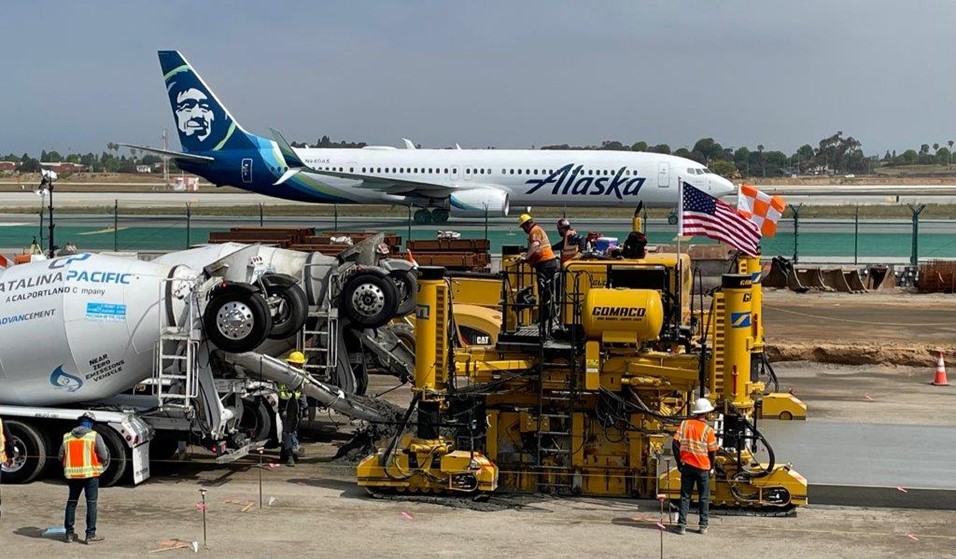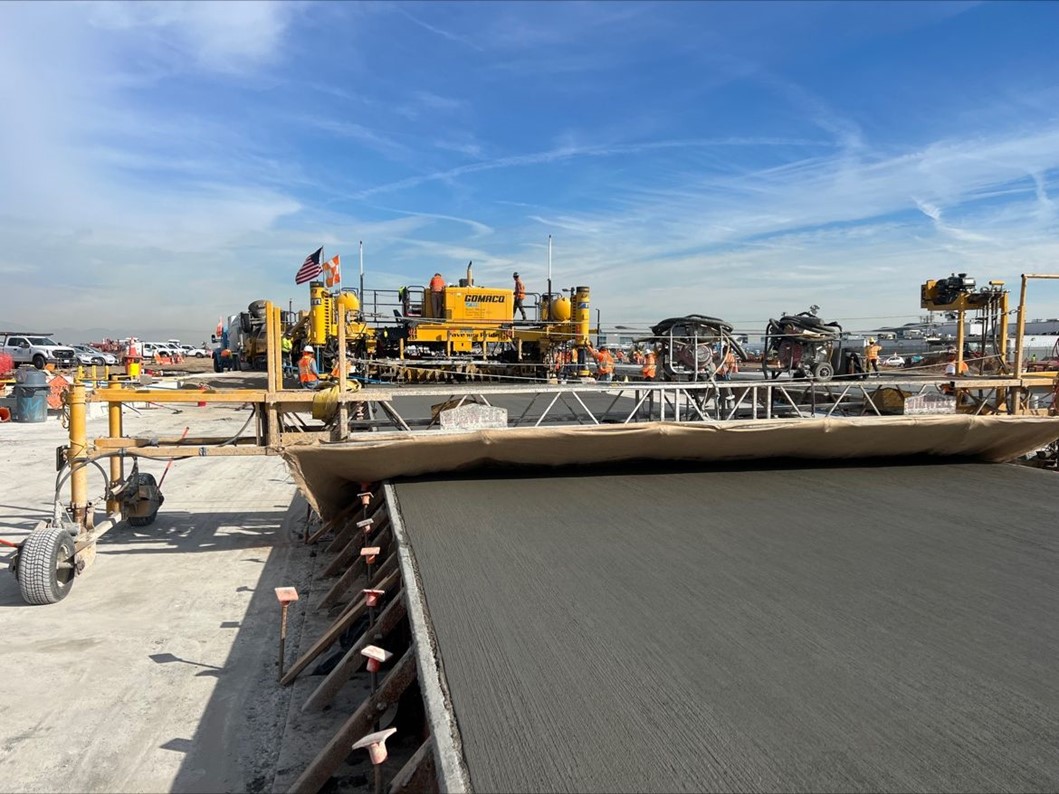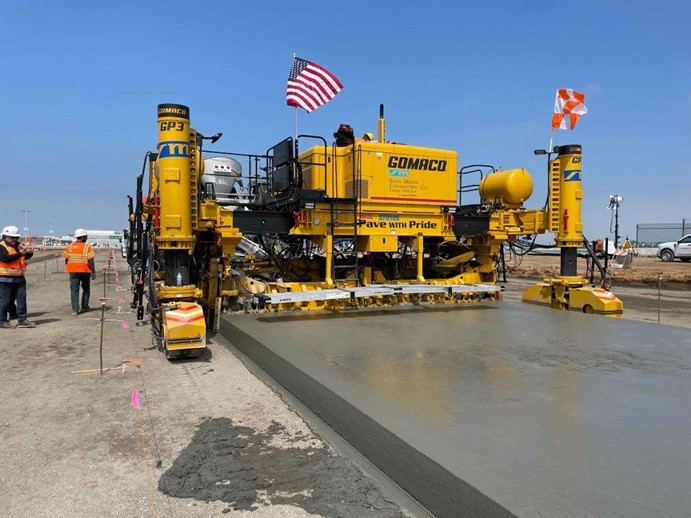Over the past several years, Los Angeles World Airports (LAWA) and LAX have undertaken multi-billion-dollar modernization projects to renovate structures, construct the Automated People Mover (APM), build the Consolidated Rent-A-Car Center (ConRAC), and upgrade runways, taxiways, and aprons.
As a part of this modernization, Sully-Miller Contracting Co. has been active in a host of paving and infrastructure rehabilitation projects at LAX. In 2018, Sully-Miller worked on the Airport Roadway and Utilities Project; in 2019, the new Taxiway P; and in 2020, several projects including the Landside Access Modernization Program.
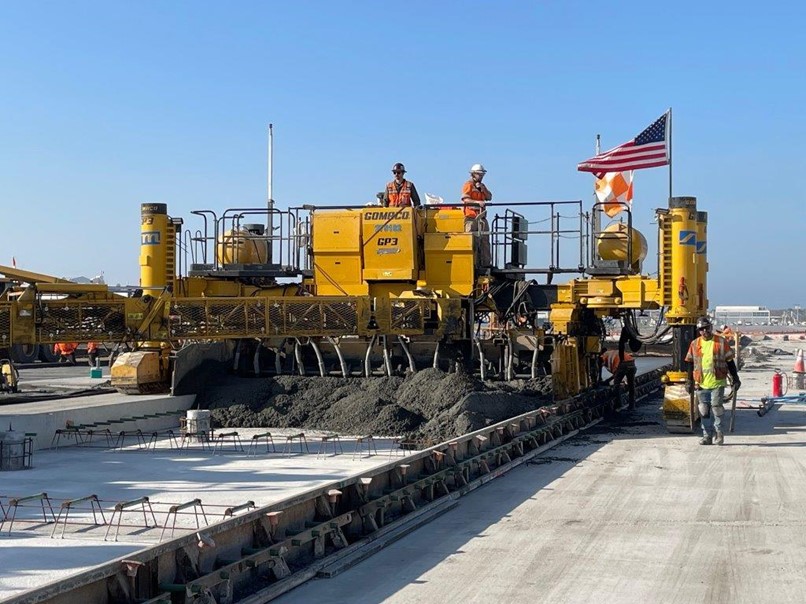
With dowel bar baskets in place, Sully-Miller’s Gomaco GP3 paves a new 19-inch-deep section of Taxiway D.
Sully-Miller’s LAX work continued in 2021 with the rehabilitation of Runway 7R/25L, replacing the 80-foot-wide keel section on the south airfield; replacement of the reinforced concrete approach slabs over the Sepulveda Boulevard Tunnel; and installation of Taxilane C9, replacing a 60-foot-wide section running the full-length (882 feet) of the taxilane.
Today, Sully-Miller is extending Taxiway D west to reach a length of 2,300 feet, meet the current FAA design standards, improve aircraft taxiing operations by enhancing pilot visibility, and provide access to new Terminal 9 and Concourse 0 facilities. Work began on November 7, 2022 and will be performed in eight phases in an effort to minimize impact on aircraft traffic. The project is scheduled to be completed on July 1, 2024.
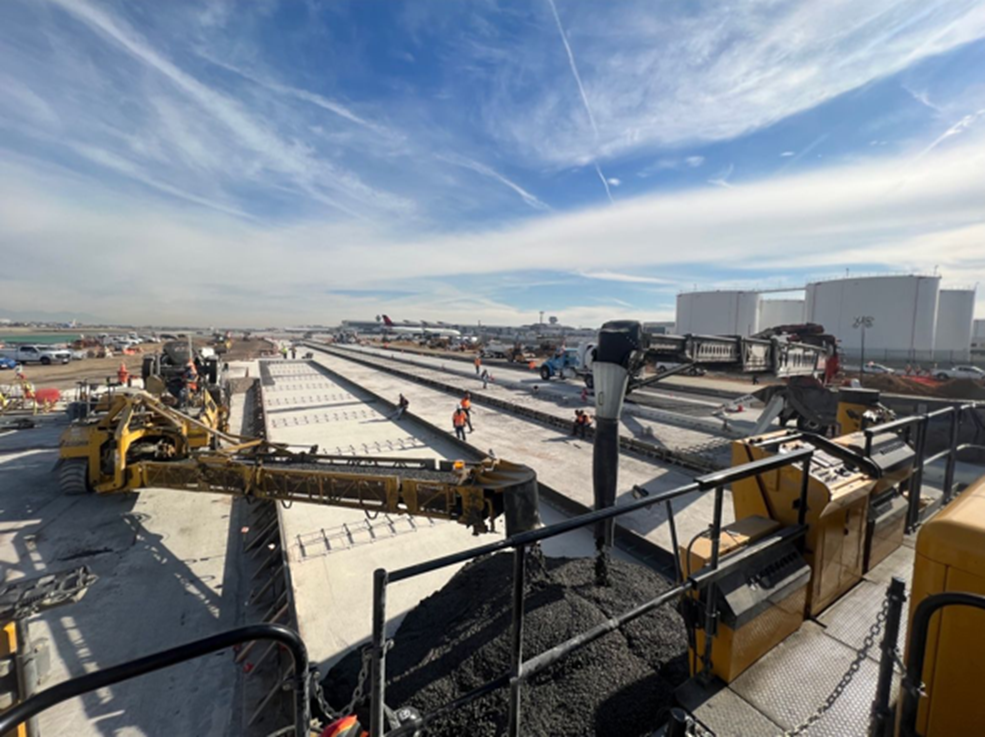
The view from the operator’s deck of the Gomaco GP3, showing feeds from both a Gomaco RTP 500 placer on the left and a Tele-belt on the right.
Sully-Miller Team Members on the project include Construction Manager Travis Clausen, Superintendent Steve Gomez, Concrete Superintendent John Flores, Concrete Paving Superintendent Tommy Risse, and Pavement Manager Frank Stevenson.
The scope of work on the Taxiway D Project consists of the construction of an east-west taxiway south of Taxiway E connecting to Taxiway P on the east and Taxiway AA on the west. Also included within the project scope is construction work on Taxiways V and W to connect Taxiways D and E, along with work on D14 to connect Taxiway D to the FedEx Apron. Additional work includes barrier walls that were built in Phase 3, along with removal of the old concrete pavement, which was then recycled, crushed, and used as fill and base material. The total value of the project is $73,153,899.
The Taxiway D extension will allow for better aircraft circulation by reducing wait times on the airfield, which would lead to less aircraft idling and a decrease in air pollutant emissions. The new extension will also provide dual parallel taxiway capability for the north runway complex, further improving operational efficiency and enhancing safety.
Sully-Miller is self-performing all of the pavement work, starting with 37,200 cubic yards of 12-inch-deep Lean Concrete Base. To handle the weight of the aircraft, 74,060 cubic yards of 19-inch-deep Type II/V Portland cement concrete is being placed to create the new taxiways and connectors.
In addition, 24,500 tons of hot mix asphalt were used in paving the lane shoulders, infield areas, and drainage swales. The concrete is coming in by mixer trucks daily from a nearby Catalina Pacific plant.
Sully-Miller started the paving work with their Gomaco GP3, then moved over to their Gomaco Commander III slip form paver. Also used in the smaller areas and the fully reinforced sections are an Allen Triple Roller Tube Paver 275 and a Whiteman Screed.
More than 20 miles of wire were installed by Aldridge Electric. ARB, Inc. handled the jet fuel storage and access, and Statewide Stripes performed the striping. Other subcontractors include Austin for the joint sealing, Integrity Rebar Placers for rebar, Moran for surveying, and Ace Fence for fence removal and installation.
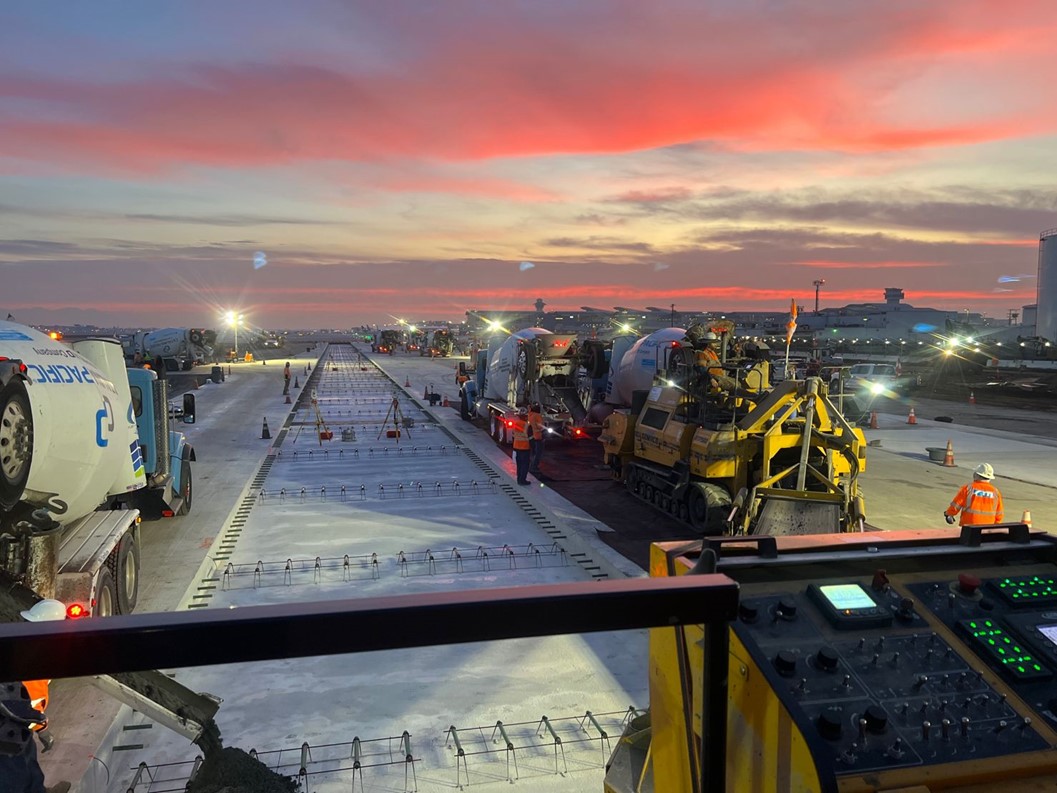
A fleet of Catalina Pacific mixer trucks line up to keep a continuous flow of concrete as the Sully-Miller crew works in the early morning hours at LAX.
Working onsite at one of the world’s busiest airports has its challenges. Sully-Miller has had to suspend construction work on varying segments due to changing flight schedules and operations, yet still remain on schedule. Access to the airport is another issue. Even though the Catalina Pacific plant is only a few miles away, it still takes 40 minutes to get the concrete trucks to the jobsite. Concrete has to be poured within 90 minutes of leaving the plant, so unforeseen delays can cause a load to be refused. Despite all of the challenges that work at LAX entails, the Sully-Miller Team remains on schedule to complete the project successfully by July 1st of this year.
Big thanks and a tip of the hard hat to Sully-Miller Pavement Manager Frank Stevenson for all of his contributions to this story. Photos by Tommy Risse and Frank Stevenson.


